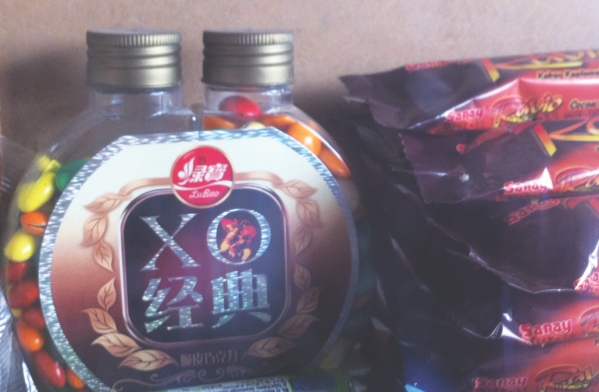| Home - Back Issues - The Team - Contact Us |
 |
| Volume 11 |Issue 38| September 28, 2012 | |
|
|
Cover Story
What Your Children Eat The current food control system of Bangladesh is highly disorganised and mismanaged and is under several different organisations whose roles are vague and often overlapping. This has allowed unaware consumers to be exposed to adulterated products, putting them and future generations in peril. Anika Hossain Amna Rafiq is a working mother with two children. She often has no time in the mornings to prepare lunch or snacks for her children to take to school so she rushes over to the supermarket on the weekends to buy whatever packaged, ready-made food items she considers most wholesome for them. “I make sure they drink milk everyday and eat healthy,” she says as she fills her shopping trolley with cartons of fruit juice and milk, colourful cereals to tempt the little ones, cookies and of course chocolates. Amna, like countless mothers in this country, trusts that these food items have all the nutritional value they claim to have on their package or in delightful ads aired on TV (where they claim to put fresh fruit directly into juice bottles). But how much of this blind belief is actually based on fact? “When I go food shopping for my household, I often notice that I don't understand the language used to print the ingredients on packaged products,”
says Hira Khan, who is also a working woman. “Sometimes, I just buy them anyway because they look good or because someone I know mentioned they taste great. It's food, how bad can it be?” she says as she buys a colourful candy with a foreign label for her seven-year-old son. “He likes colourful food and if I don't buy this for him, he'll throw a tantrum. Besides, he has had this candy before, and he never had any health problems because of it.” What Amna and Hira don't realise is that colourful, sealed packaging and persuasive advertising does not necessarily mean these goodies are what they claim to be. Research has shown that these products can potentially harm not only children, but adults as well. “A wholesome diet for children should include carbohydrate, protein, minerals and water,” says nutritionist Halima Akhter. “Fruit juice given to them must have vitamins, such as vitamin C, and a certain sugar content which helps them get the calories they need. Unfortunately, many packaged fruit juices sold in our markets have 200 to 250 calorie content, but they do not have the required amount of fruit pulp to give children the necessary vitamins. They also have preservers and acids to make the drinks last longer under any conditions and we have no way of knowing if they follow the safety precautions when it comes to limiting the amount of chemical preservers they use,” she continues. According to Akhter, many packaged products often have false expiry dates printed on them. “The proper authorities don't monitor the food value in these products or how safe they are for us,” explains Akhter. “Take packaged cakes for example, the yeast in them is a bacterium which forms carbon dioxide if placed in too much heat, and with our high temperatures and electricity fluctuations you can imagine what happens to these cakes as they sit on store shelves for hours. Bread is supposed to stay fresh for three days, but in our country it takes less time to go bad because of the heat, but most consumers are unaware of such things and continue to purchase these items.” Botulinum is a toxin that comes out of canned food, especially improperly handled meat items and can result in a condition known as botulism. “This can destroy stomach enzymes, disrupt sleep patterns in children and adults and is a life-threatening illness in both humans and animals,” says Akhter. “Nowadays, adulteration and contamination is widespread in our food markets. Junk food, juices, milk you name it and it has been tampered with using melamine, synthetic ingredients, chemical colouring etc. Ice creams, puddings, spread, syrups, chocolate almost everything contains harmful dosage of chemicals. Even when we cook at home, we cannot be sure if the fresh food we buy from the markets will have formalin [banned chemical preservative] in them. Children's digestive systems can be fragile, and can easily be affected (damaged) so parents must be aware of this and be extra careful,” she advises.
In a dialogue organised by Prothom Alo and Desh TV aired on the 1st of August 2012, Executive Magistrate and Upazila Nirbahi Officer (UNO) of Dohar Upazilla said, “These days the milk sold widely in markets have water and formalin mixed in them. But our scariest finding was related to juice manufactured and sold for children. What they claim to be lychee juice has no trace of lychee in it. This juice has chemicals that smell like lychee, but there are beautiful pictures of fresh lychee on the packaging, which is deceiving. Same goes for mango juice. We found no traces of mangos in most of the factories, the few that had some lying around were not nearly enough for the amount of juice they were producing. We found that they use saccharine instead of sugar in chocolates, because it is a cheap supplement for sugar and can be used in smaller quantities than sugar when making chocolates. Unfortunately, saccharine is very harmful and cannot be used as a substitute for sugar. We also found traces of textile colouring in these chocolate factories.”
According to research material provided during this dialogue, formalin, sodium hydrosulphide, calcium carbide, itu-fen, DDT, textile colour and saccharine are all banned in the food manufacturing industry in Bangladesh. Tasting salt, baking soda and artificial flavours can be used in small amounts. If used excessively, these can damage the liver and kidney. The banned chemicals mentioned above can only be used in the crafts industry, but they are being used to preserve fish and fruit, make jilapi more crunchy, muri (puffed rice) more fluffy and to ripen and brighten the colour of fruit. DDT and textile colours are being used to preserve shutki (dried fish); they are also used in powdered chilli, turmeric, coriander, sauces and ice cream. ABM Faruq, the dean of the Pharmacy Department of Dhaka University, mentioned during the dialogue that in their research they have tested and found leather colour in some food manufacturing factories, which is more harmful than textile colour. According to Faruq, no mosquitoes or living organisms go near water bodies where textile colours are dumped, but these same colours are now being used to make powder chilli redder and turmeric, a brighter yellow.
“Those who are marketing products like this are violating the Labelling Law,” says Quazi Faruq, president of the Consumers Association of Bangladesh (CAB). “This states that not only do these products have to have a list of ingredients and expiry date, these must be printed in our local language alongside a foreign language if the products have been imported from abroad. Unfortunately, many such foreign products do not follow this law, making it difficult for the consumers to know what exactly they are purchasing. This is a crime.” According to Faruq, when local businessmen are importing these products, they should, according to the law, be held back in customs. “But somehow, these people get by the customs officers and get the approval they need from the Bangladesh Standards and Testing Institutions (BSTI) to sell these products in the local markets,” says Faruq. “Since the laws in place are not implemented properly, the lack of action from the proper authorities encourages this type of corruption and violation.” At times, says Faruq, some products don't even have a price marked on them, which is also a violation of the law. “To give you an example, there was a brand of milk known as Marks and this was being sold without a price tag which our surveillance team discovered,” shares Faruq. Faruq also mentions that the BSTI is doing work on preventing this type of crime through surveillance. “Unfortunately, due to corruption within the organisation and underhand dealings, these products are still widely available in the markets. Many of these products are also harmful for children and for adults,” he states. “As a result of this, in Bangladesh, most types of food, especially for children are quite unsafe, they even have supplements for breast milk which do not meet our standards. Food safety is the responsibility of the BSTI as well as the Institute of Health and Nutrition (ITHN) but they don't really look into these matters the way they should.”
Md Taher Jamil, the deputy director of administration at the BSTI refutes this saying, “The BSTI does not look at all types of products. It is mandatory for us to look at 59 packaged food items. The 2009 and 2012 import policies established by the government states that we must look into 39 products, only some of which are food items.” When a company or individual wishes to import a food product to market in this country, it is their responsibility to come to the BSTI and enquire whether their product is included in the list of “prohibited” items, i.e. the items the BSTI is mandated to test before they are given certification. “If it is included in our list we inform them of the procedure they must follow to get approval from us to market them,” explains Jamil. “For example, for labelling, they must follow the rules stated in the Standard of Weights and Measures Packaged Commodities Rules 2007. This mentions a few details that must be submitted to us such as the name and address of the importers. It also mentions that the brand name must be clearly visible on the package along with the manufacturing and expiry date of the product, its retail price and net weight. The list of ingredients must also be printed in Bangla alongside the language of the country it is being imported from. These are some of the primary prerequisites that have to be met by them.”
Saiful Islam, the deputy director (CM wing) of BSTI says, “We only release products that meet our standards. Imported packaged goods have less possibility of being adulterated. Our main job at the BSTI is to look for substandard products and remove them from the market. We have definitely found cases of adulteration and violation of our strict regulations, and in such cases we have the perpetrators arrested, their products destroyed and bring along a mobile court for quick sentencing.” According to Taher Jamil, products such as fruits, fish and vegetables that are imported, are tested by the National Food Advisory Council, under the Health Ministry. “It is still in its primary stage but it monitors these. We partner up with them since there are a lot of cases of adulteration and substandard food in the market and we must assist the City Corporation,” says Jamil. “While with fresh unpackaged products we have seen the use of formalin, pesticides and other harmful chemicals, we have not seen much of that with packaged food in our surveys. With packaged foods there are problems like there are no expiry dates on them sometimes, no net weight mentioned, but the products themselves have nothing harmful in them that we have found. Perpetrators are sentenced by the mobile courts and we use help from the RAB and police to get hold of them.”
A Safe Food Law was established in 2005, called Bangladesh Pure Food (Amendment) Act 2005, but the punishments for violation stated in this Act are minimal and cannot stop the offenders from continuing their illegal activities. “Amending this law is also not easy,” states Quazi Faruq. He contradicts Jamil further by stating that “A few months ago, a group of people in Rajshahi claimed they were making Akher Gur or molasses but they were actually using chita gur (used in tobacco and as animal food), sugar, flour, hydrosol, and fitkiri (potassium aluminum sulphate) and have found a technology to make a substance that resembles molasses. The police raided their factory and arrested them, but unfortunately, nothing may come out of this. They will get bail long before their cases even reach court. If they were given exemplary punishment, we could make some progress toward improving this situation.” Faruq goes on to say that there is a law that issues the death penalty for such violations. “But ruling parties are afraid to use it because they may lose popularity with their voters,” explains Faruq. “Also small businessmen such as the ones I mentioned also have connections with powerful businessmen who in turn, have connections within political parties and therefore cannot be touched. Most of the time, lawmakers are also businessmen and as a result, we are making little progress in containing the situation. However, having said that, the Safe Food Movement of Bangladesh is making some progress with the help of the FAO and the government.” In the meantime, however Faruq warns us about the many foods that are unsafe, especially for children. “These days, many brands of milk have chana pani (whey) mixed with a type of chemical to make it look like milk,” he explains. “This is known as plastic milk. Some people knowingly buy this product because it is cheap and they don't realise the long-term effects it can have on their health. They also buy them because they are helpless. They no longer know where they can find affordable safe food. The Safe Food Movement will take some time to bring about improvement.”
The current food control system of Bangladesh is highly disorganised and mismanaged and is under several different organisations whose roles are vague and often overlapping. This new policy will organise the entire system and clearly define the roles and duties of each organisation along with penalties for failing to perform these roles. Roles will be assigned to manufacturing businesses, consumers and academic and research institutes to assist the government in bringing about improvements in the system. Under this policy, well trained, resourced and supervised food inspectors who will be assigned to monitor the food markets on a regular basis. Laboratories and equipment for testing all products that will be made available to consumers will be improved and updated. The policy will also bring with it better communication and information flow with customers and stakeholders, for which highly qualified communications staff will be selected. An important aspect of this will be more effective media management to help create awareness and share information with the public, a majority of whom are completely unaware of the perilous situation they are in. These are just a few of the many positive changes listed in this draft. If approved and implemented properly, this policy will be a ray of hope in what seems to be the dark place the food industry of Bangladesh has crawled into. But this will take time. In the backdrop of apathetic and inefficient monitoring and testing of these products it seems to be up to the consumer to decide which products to avoid. It is very important for customers to be extra vigilant about what they are eating and more importantly, feeding their children. Adulterated and substandard products won't always have an immediate adverse effect on health, sometimes, the symptoms show up much later in life and can result in deadly illnesses such as cancer, paralysis and even death. It isn't easy to figure out which products have not been tampered with, so it is best to avoid colourful synthetic looking products with no labels, expiry date or ingredient list, and opt for home-cooked meals which are comparatively safer. Let's keep our fingers crossed and hope for the best.
|
||||||||||
Copyright
(R) thedailystar.net 2012 |
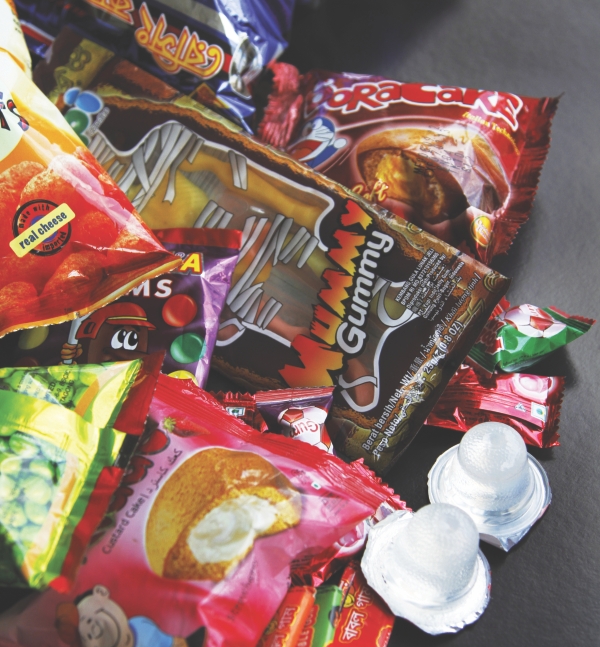

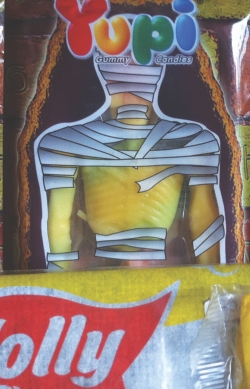
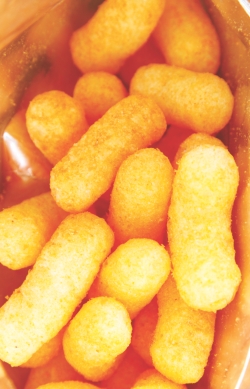
 W
W
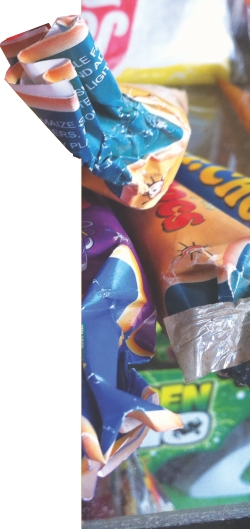 When products are imported they must be declared at customs, where officers will report their arrival to the BSTI. “If they arrive at land ports we send our officials from our nearest offices to collect samples of the products,” says Jamil. “The group we send comprises of three people, one representative from the BSTI, one customs officer and one law enforcement officer. We take samples from their products and if the test results prove that the products meet our standards, that is, the national standards, we issue certificates. The same group of people must go through the same procedure every time they import these products to get a certificate. Customs releases their products once we give them clearance, and they are free to market them.”
When products are imported they must be declared at customs, where officers will report their arrival to the BSTI. “If they arrive at land ports we send our officials from our nearest offices to collect samples of the products,” says Jamil. “The group we send comprises of three people, one representative from the BSTI, one customs officer and one law enforcement officer. We take samples from their products and if the test results prove that the products meet our standards, that is, the national standards, we issue certificates. The same group of people must go through the same procedure every time they import these products to get a certificate. Customs releases their products once we give them clearance, and they are free to market them.” 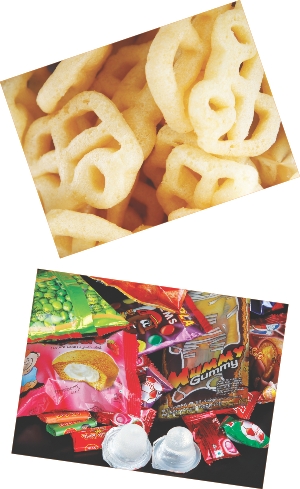
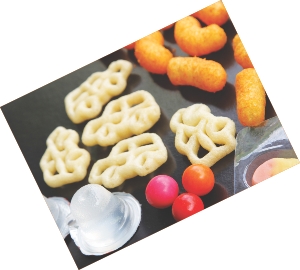 T
T